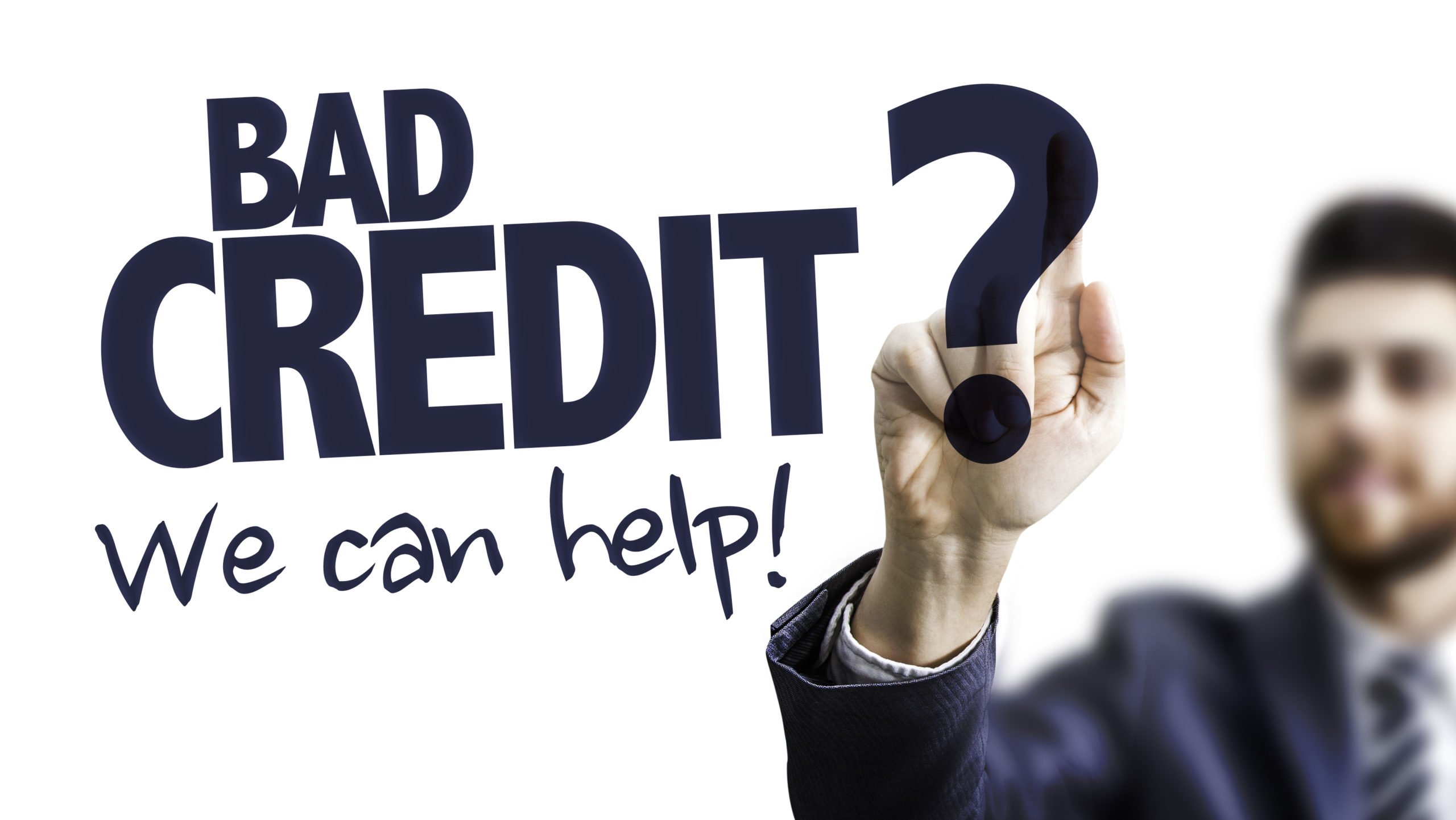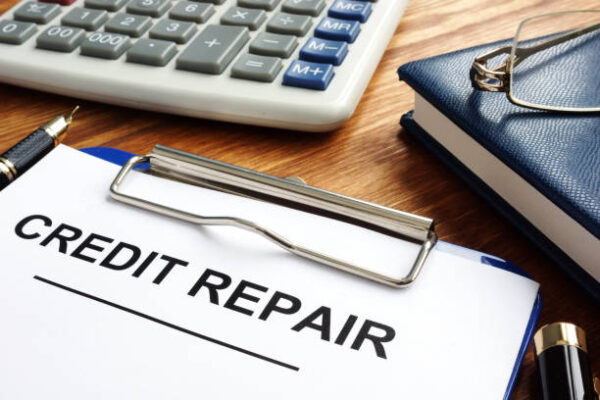How to Clean Up Bad Credit

Your credit report contains crucial information that might make or break your chances of getting a loan or credit card in the future. It's worth your time to take a look and clean it up, since doing so may increase your chances of being approved and help you find unexpected methods to save costs and improve your credit. When you apply for a credit card, loan, or rental unit, the credit bureaus will look at your record. Using the details provided in your credit report, creditors may determine whether you are a reliable borrower. The likelihood of acceptance and the conditions offered may both be negatively impacted by mistakes on a credit report.
The ways can assist you in cleaning your credit
1. A free copy of your credit report is available
In order to spot any anomalies early on, it's crucial to check your credit report often – at the very least once a year, if not more frequently.
Every year, you are entitled to a free credit report from each of the three main credit agencies (Equifax, Experian, and TransUnion) as provided by federal law. All three bureaus are, however, providing free weekly reports until the end of 2022 because of the epidemic.
The only free credit report website approved by the federal government is AnnualCreditReport.com, where you may make a request for your own. Check your reports from all three agencies, since each one may include information from creditors and lenders that is different.
2. Submit a complaint to the credit bureau

Once you get your report, go through each account to check for any unfamiliar creditors or accounts. It's also crucial to confirm that earlier negative items—those with a delinquency date that is more than seven years old—are still being reported.
If you do discover inaccuracies in your reports, file a formal complaint by mail or online with the reporting bureau. The bureau will launch an investigation as a result of this.
Remember that disputing the entry with each agency is necessary to ensure that the removal is done completely everywhere.
3. Take the creditor's side in a dispute
You may also get in touch with the organization, such as a bank or credit card provider, that originally sent the information to the bureau. All issues must be looked into and addressed by lenders. Don't forget to include as much evidence as you can to back up your assertion. A copy of your report with the inaccuracy noted is also beneficial.
On your report, beneath the negative item you want to challenge, is often stated the address to which you should send the letter. In order to confirm the mailing address and the required papers, you may also get in touch with the lender directly.
The lender will inform the bureau and request that it amend your records if it discovers that it made a mistake or is unable to demonstrate that the debt genuinely belongs to you.
4. Examine the claim outcomes.
Lenders and reporting agencies often look at issues for 30 days. Within five days after finishing their evaluation, they must inform you of their choice. If the disputed item was deemed to be accurate or not, the message will let you know.
If it turns out that the challenged information was false, the agency must either correct it or remove it. If the disagreement ends in a modification, they need to provide you with a free copy of your file.
You may submit a second claim if the bureau or lender determines that the disputed information is accurate. Check your original claim for any mistakes and fix them. If at all feasible, include further supporting documentation to your request so the bureau can assess any data it may have overlooked the first time.
5. Work with a credit repair company

Inaccuracies might take a while to dispute, particularly if your history contains several errors or if you were a victim of identity theft. If your file is full of errors, reputable credit repair businesses like Credit Saint, Lexington Law, or Sky Blue may be a good option.
Wipe my credit clean for free
There are other options than hiring a professional or expert while working to improve your credit score. Asking, "How can I wipe my credit clean for free?" is a common enough occurrence that it's worth discussing the several options available to you. As stressful as dealing with a low credit score might be, the effort required to improve it is worth it. You don't need the help of a credit repair service to start over with a clean credit history. If you want to take responsibility for your financial position and avoid any damage to your credit score, you should contact your creditors and figure out a plan to pay off any past-due balances or bring yourself up to date on any outstanding invoices.
If you want to repair your credit, experts recommend starting with a direct conversation with your credit card company. This is done to check for potential earnings from deletion fees. If this is the case, the negative information will disappear from your credit report very immediately.
How to wipe your credit history clean
There are a number of various methods that may be pursued in order to have adverse information deleted from a credit report. These include: Credit disputes, goodwill adjustments, pay-for-delete agreements, and credit restoration firms are some of the options available to consumers. If your account remains dormant for seven to ten years, the credit bureaus will remove your credit record from their respective databases and delete it.
How to wipe your credit history clean
Having poor credit may be a living nightmare for some people. If you are unable to get new loans as a result of your credit score, or if your credit score even hinders your ability to look for an apartment or a job, then erasing your credit history may seem like the ideal answer for your problem.
The most effective strategies for removing negative information from a credit report include disputing the information, asking for a goodwill adjustment, negotiating a pay-for-delete agreement, or working with a credit repair firm. You might also refrain from using credit altogether and wait for the default deletion of your credit history, which typically occurs between seven and ten years after the last credit transaction.
How can I erase my bad credit history?
When it comes to your credit history, the first thing you should do is familiarize yourself with your rights. Credit bureaus and lenders are required by the Fair Credit Reporting Act (FCRA) to verify that the information they disclose is both accurate and true.
This implies that you have the legal right to challenge any errors that you discover in your credit report in the event that you discover such errors. In addition, the agencies are expected to delete the material you contested from your record if they determine that it does not belong in your record or that it is no longer accurate.
The incorrect labeling of payments as late or the listing of closed accounts as open are two examples of common inaccuracies that may appear on credit reports. There is also a possibility that your report will include information that belongs to another person, potentially someone with a name, Social Security number, or other identifying information that is similar to yours.
What is the credit score loophole?
According to personal finance expert Robin Saks Frankel of Forbes Advisor, "The 609 loophole is a section of the Fair Credit Reporting Act that says that if something is incorrect on your credit report, you have the right to write a letter disputing it." This provision of the Fair Credit Reporting Act states that you have the right to write a letter disputing it if something is incorrect on your credit report.
If your credit report contains inaccurate information, one of your rights under the Fair Credit Reporting Act is to challenge the information by sending a letter to the credit bureau contesting the information. This exact provision may be found in the legislation governing the Fair Credit Reporting Act.
People Also Ask
1. Can you clean up your credit report?
To clean up your credit reports, you should first get copies from each of the three main credit reporting agencies (CRAs), then check them for errors and outdated information, and last, request that the CRAs remove or update the inaccurate information.
2. Can I pay someone to fix my credit?
Although it could be tempting to hire a credit repair firm to help you improve your credit score, keep in mind that there is nothing they can do for you that you can't do yourself for free.
3. What is the credit score loophole?
According to Forbes Advisor's personal finance expert Robin Saks Frankel, "the 609 loopholes" is a provision of the Fair Credit Reporting Act that states consumers have the ability to file a letter contesting inaccurate information on their credit reports.
FAQs
1. What is the fastest way to clean up your credit?
Some fast ways to boost your credit score are: Put your credit card debt on the back burner and pay it off methodically, Add yourself as an authorized user and request increased credit limits. Punctuality in bill payment, Report an inaccuracy on your credit report and have it investigated, Take care of debts in collections and switch to a secured card.
2. What is credit washing?
For those who don't know, credit washing is the act of dishonest people approaching creditors and making up stories about identity theft. This enables them to get vehicle loans at rates for which they are ineligible and "wipe" the damaging allegations off their record.
3. How can I clean my credit to buy a house?
Take a look at your credit report and go to work fixing it. Fixing a low credit score requires first and foremost an in-depth familiarity with the details included inside a person's credit report. In the event that there are mistakes on your credit report, you should dispute them. Get out of debt by paying off what you can.
Summary
If you discover any, you should immediately submit a dispute with the three major credit reporting agencies (Equifax, Experian, and TransUnion) through their respective websites or postal services. Furthermore, you must inform your financial institution or credit card company. With their assistance, you may confirm that the inaccuracies in your report are really so, and then report them to the appropriate authorities. Keep an eye out for a reply from the government agency. It will probably be here in a month or less. In the event that your dispute is accepted, you should obtain your credit report once again to verify that the inaccurate information has been erased. Consider working with a credit repair business if you have a lot of inaccuracies on your report and are having trouble resolving them via the dispute procedure.
https://bit.ly/3AGOZM3
Comments
Post a Comment